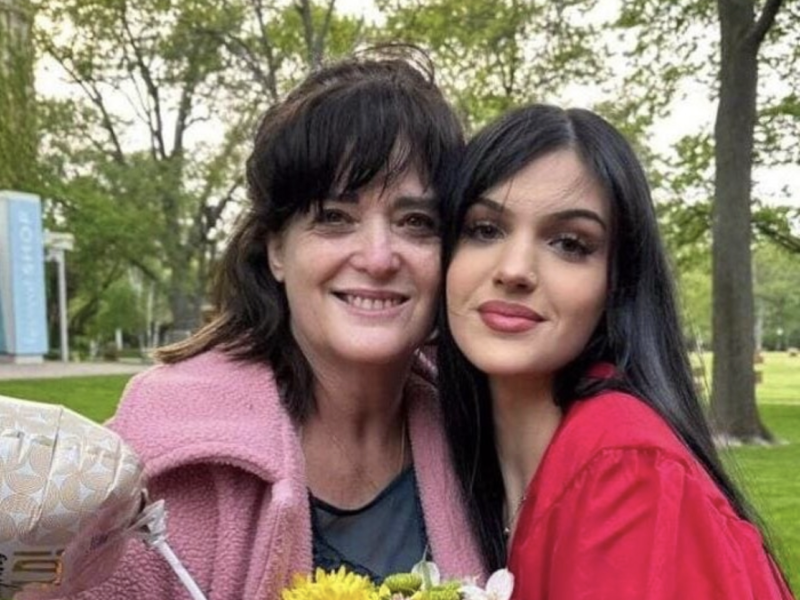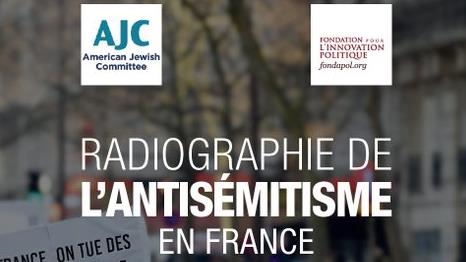A hero of our time and for the ages, Natan Sharansky shone a bright light on the plight of Soviet Jewry from his dark cell in a Soviet prison. Now, as chairman of the executive of the Jewish Agency for Israel, Sharansky uses his experiences to illuminate the importance of strong identities and the role of Israel in connecting Jews to their historic struggle for both freedom and identity.
Oregonians can meet the famed dissident and Israeli statesman this month when he speaks at the Jewish Federation of Greater Portland’s 92nd annual meeting June 5. Families are encouraged to bring their children and grandchildren to hear the insights he gained through a lifetime of extraordinary personal courage.
In the preface to his third book, Sharansky discusses three distinct periods in his life. Initially a loyal Soviet citizen adept at the doublespeak necessary to survive in a totalitarian regime, he became a dissident and then political prisoner who ignited a worldwide movement. He emerged as an active leader in the public and political life in the free world.
In 1973 – the year Sharansky and his wife, Avital, applied for exit visas – the Jewish Telegraphic Agency reported “mass arrests and detention in show trials reminiscent of the Stalin era.”
Denied a visa, Sharansky became a spokesperson for the Helsinki Watch Group, which monitored Soviet compliance with the human rights clauses of the Helsinki agreement. His 1977 arrest, trial and conviction captivated the Western press.
Avital, whose visa had been approved, settled in Israel and fought tirelessly for husband’s release.
When the USSR’s last leader, Mikhail Gorbachev, began a period of glasnost (openness), Sharansky was released in a spy exchange between the United States and the Soviet Union.
Rejoining Avital, his mother, and other members of his family in Tel Aviv on Aug. 27, 1986, he told the crowd at the airport: “[It] is an important lesson that no quiet diplomacy, even at the highest levels, can help if it is not accompanied by a strong public campaign to convince the Soviet Union to let our people go.”
Sharansky has served as a minister in four Israeli governments. In 2009, he was elected to a four-year term as chairman of the Jewish Agency for Israel.
In preparation for his Portland visit, Sharansky spoke with Oregon Jewish Life, by phone. Following are our questions and his replies (edited for brevity and clarity).
I’m sure you get many requests to speak, why did you agree to come to Portland?
We want to keep in contact with all Jewish communities in the world, and Portland is a very important Jewish community … (with a mix of) American Jewry and Russian-speaking Jewry and Jews who came from different places … some (of whom are) very successful.
Your latest book, Defending Identity: Its indispensable role in protecting democracy makes a strong case for the importance of strong identities for the individual and society. But can you provide a quick, convincing argument that will persuade American college students living in a country with religious freedom that their Jewish identity is important?
There are two basic desires of people: to be free and to belong. … The trouble is that when you want to be free, you want to give away your belonging, whether religious or national, and those who are doing it occasionally find out that life has much less meaning. Life with meaning means that you feel your place between your grandfather and grandchildren, you want to connect with them. When you rediscover your identity, it brings meaning to your life.
In the first part of my life I grew up as an absolutely assimilated Soviet Jew. You are dreaming then about the world as John Lennon was singing [in Imagine], “a world without nations, religion … where there is nothing to die for,” and if there is nothing to die for, it will end.
Then I found out that I have a unique history, and I want to be part of it, that I want to be connected with my people and I want to be connected with the country whose existence adds so much meaning to my life. The moment you discover that you are inside history, connected to your community … you discover your family. Then you have the sense the fight, then you have values, then you have ideals. The moment you have something to die for, you have something to live for.
They [college students] are also looking for meaning. Meaning has to put you in connection with the past and the future, and you are the chain between the past and the future. People try to convince themselves that they don’t need any fresh meaning in their life, but the moment they discover life has meaning, they know the difference.
What is the primary role of Israel in Diaspora Jewish identity?
Today we have the big challenge of assimilation in Jewish communities. American Jewry discovered that the best way to connect yourself or to reconnect your children with their identity is to give them meaningful experiences in Israel. Israel is not simply the country of the Jews. It is a place where the thousands of years of dreams, of prayers, of the fight of the Jewish people were connected. The ancient nation is a startup nation.
I had the opportunity to speak with literally thousands of young Jews on different programs in Israel, and I find out that their experience is very similar to our experience as Soviet Jews when suddenly we discovered our identity. In a much less dramatic way, young Jews discover they have history, that they have roots, that they have family and they have faith. And that’s what causes them to reconnect with their people.
Your struggle to emigrate from the USSR in the 1970s and ’80s inspired an entire generation of American Jews to actively engage in the struggle to free Soviet Jews. What causes can inspire today’s generation to become engaged in Jewish life?
There are two big world views: In the Muslim Arab world, identity denies freedom. So here is society of identity without freedom … that’s why all the (Arab Spring) revolutions (occurred).
On the other hand, Europe is very devoted to freedom but tries to get rid of identities to continue to be free.
So on one hand we have identities without freedom, and others have freedom without identities.
Here is a small people, an ancient people, a small country (Israel), which became a people when we became free. The first time we are mentioned as a people is when we left Egypt. So for us freedom and identity were always connected throughout our history, our history is a struggle for identity and freedom together.
Today Israel, as a Jewish democratic state, stands against the world of identities without freedom, or freedom without identities. Israel continues the tradition of the Jewish people – that freedom and identity should go together and do go together. This is the real tikkun olam (repair of the world) that we are doing.
Portland’s Jewish community sponsored two Freedom Flights as part of Operation Exodus; 20 years later what are your thoughts on the impact of such actions by Portland and other communities?
Our departure from the Soviet Union would never have succeeded if it wasn’t for from the very first day the struggle of the Jews of the world and American Jewry first of all. Because we will always be arrested immediately, activity was stopped immediately. Because of the struggle of the Jewish community, when we won that struggle, it was the victory of everyone.
In a few years, the Jewish Agency brought one million Jews to Israel. This operation could not be done by the Jewish Agency or Israel by themselves. It was the effort of the world and the effort of Jewish communities in the United States of America, and this includes Portland. It changed the history of the Jewish people and changed Israel. Israel is very different today because of these one million Jews who came from the former Soviet Union.
Our struggle in the 1970s and 1980s could never develop if it wasn’t a struggle of all the Jews of the world. It was the pressure of all the Jews on the Soviet Union. The first stage it was the struggle of world Jewry against the Soviet Union, and when the Soviet Union was defeated it had to bring down the Iron Curtain.
So when we have won the struggle, we destroyed the Iron Curtain, it was the victory of everyone.
(Your wife) Avital’s tireless efforts to free you and other refuseniks were inspirational. What causes does she continue to advocate for?
Avital had a great cause of building the family and not letting the world to destroy our private lives. Now we got some new titles – grandfather and grandmother. So Avital is enjoying this new title.
I was visiting Jewish communities in South America and Avital was with me. In Uruguay, she visited the Jewish community of Kehillat Or for people with serious physical and mental disabilities. She was very inspired by these people who were trying to be part of Jewish life. They told her their dream is to be in Jerusalem, but they know it’s impossible. And she said, “I promise you will be in Jerusalem.” So for a couple of years she raised money. Just a few days ago, each of them had a special person to accompany them to Israel. Just now they are in Israel, and it is very exciting and moving to see these disabled people moved by meeting Israel.
How can an open society deal with groups who seek to promote their own identity to the exclusion of others?
Freedom and identity are not enemies; every group has the right to express their identity in all possible forms as long as it doesn’t restrict the right of other groups to exist. The same about individual human rights … it should not undermine the rights of others. In America public space is open (for) people of different backgrounds as long as they don’t push aside other identities. Unfortunately, in Europe the idea of freedom is to erase identity, that’s why they’re paying such a heavy price.
________________
Natan Sharansky in Portland
Tuesday, June 5 at 7 pm
Jewish Federation of Greater Portland Annual Meeting at Congregation Neveh Shalom,





